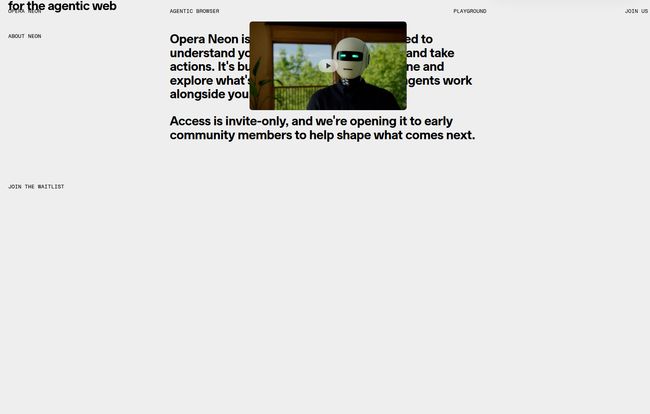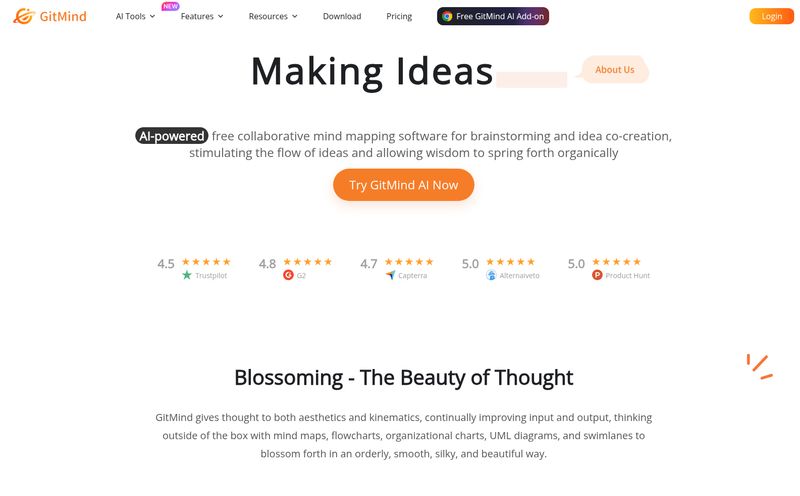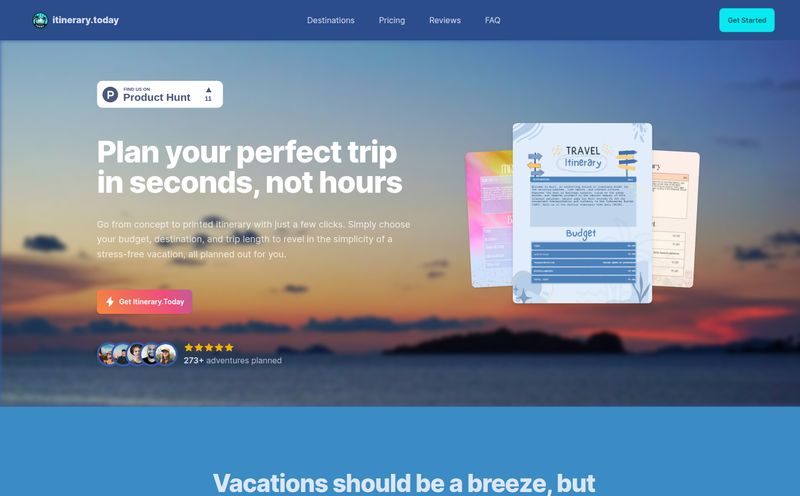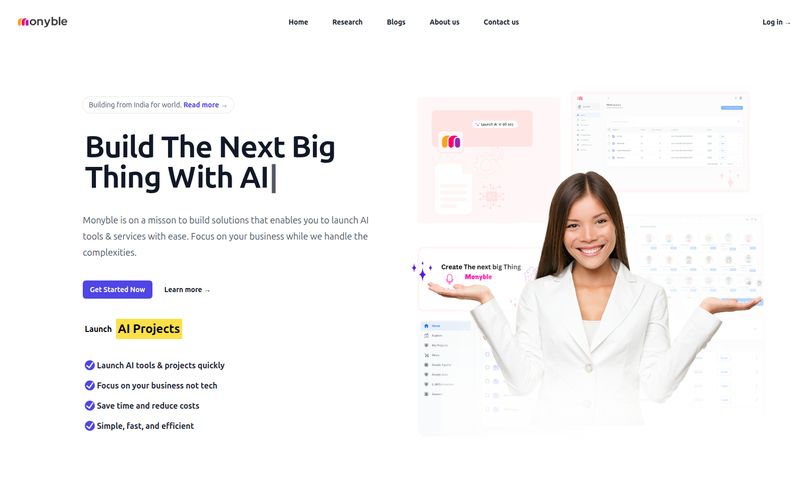My browser isn’t just a tool; it's my command center, my library, and my window to the world. And for years, it’s felt like we've hit a plateau. Sure, they get faster, a little slicker, but the fundamental experience? It hasn't really changed. We're still the ones doing all the heavy lifting.
Then, a murmur starts in the usual tech circles. Whispers of something called the "agentic web." And right on cue, a name pops up: Opera Neon. Not to be confused with the experimental concept browser from 2017, this is something new. Something bolder. It claims to be an agentic AI browser, designed not just to fetch information, but to understand and act on your behalf.
My curiosity wasn't just piqued; it was hooked. Is this the leap forward we've been waiting for, or just another slick landing page with a long waitlist? Let’s get into it.
First Off, What on Earth is an 'Agentic AI' Browser?
Before we look at Neon specifically, we have to talk about this term: "agentic." It’s a word you’re going to hear a lot more. For the past year, we've all been playing with generative AI like ChatGPT. You give it a prompt, it gives you text or an image. It's an incredible conversationalist and a decent copywriter, but it can’t do anything for you outside of that chat window.
Agentic AI is the next step. Think of it less like a chatbot and more like a tireless personal assistant. An agentic system can understand a complex goal, break it down into smaller tasks, and then execute those tasks across different applications or websites. It has agency. It can take action.
So, an agentic browser isn't just showing you search results for “best flights to Tokyo.” It’s supposed to be able to find the best flights, compare them based on your preferences (I hate layovers longer than 3 hours), check your calendar for availability, and maybe even fill out the booking form for you. It’s the difference between getting a recipe and having a chef actually cook the meal. A pretty massive difference.
A Glimpse into the Promise of Opera Neon
Alright, so with that context, let's look at what Opera Neon is putting on the table. The website is minimalist, futuristic, and full of big promises. It says Neon is “designed to understand your intent, assist with tasks, and take actions.” It wants to turn your complex prompts into “full-scale results.”
This is where the magic is supposed to happen. Instead of you opening ten tabs to plan a weekend getaway—one for flights, one for hotels, a few for restaurants, another for local attractions—you could theoretically give Neon a single instruction:
“Plan a relaxing 3-day weekend in the Lake District for two next month. Budget is £600. Find a cozy cottage with a fireplace, book a table at a gastropub for Saturday night, and find a moderate-level hiking trail.”
If Opera Neon can deliver on its promise, it would parse that request, browse the web for you, and present you with a full-fledged plan. That’s the dream, anyway. The browser becomes an active partner, not a passive window.

Visit Opera Neon
Built by the Community, For the Community?
Right now, you can't just download Opera Neon. Access is invite-only, with a waitlist for what they're calling "early Community members." Honestly, I think this is a smart move. Building something this ambitious in a closed lab is a recipe for a product that looks great in a demo but falls apart in the real world.
By bringing in users early, Opera gets to see how people actually try to use it. The weird, unpredictable prompts, the edge cases. It allows them to shape the product with real-world feedback. It also builds a nice little bubble of hype, which never hurts in the traffic generation game.
The Hype Train vs. The 404 Page of Reality
Okay, let’s be real for a second. The promises are huge. World-changing, even, for how we interact with the internet. But I’ve been in this industry long enough to see countless “next big things” fade into obscurity. And there are some… wrinkles.
While gathering my thoughts for this piece, I went back to the Opera Neon site and was greeted by a lovely “404 No page could be found” error. A day later, it was back up. This could be anything—a temporary server glitch, a deployment issue, who knows. But for a flagship product thats supposed to seamlessly navigate the web for you, its own website being down isn't a great look. It’s a reminder that this is all still very new, very experimental, and probably a bit fragile.
Building a true agentic AI is monumentally difficult. It requires an AI that can not only understand language but also interpret the structure of millions of different websites, handle logins, bypass CAPTCHAs, and make decisions without constant human supervision. The potential for it to go wrong is… high. I'm optimistic, but a healthy dose of skepticism is required.
The Inevitable Question of Pricing
Let's talk money. A small note at the bottom of their page confirms what many of us suspected: “This is a subscription-based product. Pricing tiers and details will be announced soon.”
And you know what? That makes sense. The computational power required for this kind of AI isn't cheap. I wouldn’t expect a tool this powerful to be free. The big question will be how much. Will it be a small monthly fee like a Netflix subscription, or a more premium price tag aimed at power users and professionals? I'm betting on a tiered system, maybe a light version for casual users and a more robust “pro” plan for people who can really leverage the automation for work. We'll have to wait and see, but I'm saving a little room in my monthly budget just in case.
How Neon Stacks Up Against the Competition
Opera isn’t alone in stuffing AI into a browser. Microsoft is pushing Copilot hard in Edge. The Arc browser has its own set of AI features. But most of these are still in the “assistant” phase—they can summarize a page, help you write an email, or search more intelligently. They don't really cross that bridge into taking action on their own.
That agentic capability is what makes Neon different, at least in its pitch. It’s competing less with Edge's Copilot and more with standalone AI agents. If they can nail the integration into a smooth, intuitive browsing experience, they could carve out a very powerful niche for themselves.
Frequently Asked Questions About Opera Neon
- What is Opera Neon in a nutshell?
- Opera Neon is a new, experimental web browser built around 'agentic AI.' It's designed to understand complex commands, automate multi-step tasks online, and act as a proactive assistant rather than just a tool for viewing websites.
- Is this the same as the old Opera Neon from 2017?
- No, it's not. The original Opera Neon was a concept browser focused on a new visual design and physics-based animations. This new Opera Neon is a completely different project focused on functional, agentic artificial intelligence.
- How can I get access to Opera Neon?
- Currently, access is limited to an invite-only beta. You can visit their official website and sign up for the waitlist to be considered as an early community member to test and provide feedback.
- Will Opera Neon be free to use?
- The website states that it will be a subscription-based product. This means there will likely be a recurring fee to use it. Specific pricing details have not been released yet.
- What really makes an 'agentic' browser different from one with a regular AI chatbot?
- The key difference is action. A standard AI chatbot can answer questions or generate text. An agentic AI can take those answers and perform actions across the web—like comparing products from different sites, filling out forms, or booking appointments based on your instructions.
- Is there a release date for Opera Neon?
- There is no official public release date yet. The project is still in an early, invite-only phase focused on development and community feedback.
The Final Word… For Now
So, is Opera Neon the future of browsing? It’s too early to say for sure. The concept is absolutely thrilling. The idea of offloading the tedious, multi-tab grunt work of our digital lives to an intelligent agent is incredibly appealing. It could free us up to be more creative and strategic.
But the gap between a killer concept and a flawless product is wide and filled with technical challenges. For now, I'm watching Opera Neon with a lot of excitement and a little bit of caution. I’ve joined the waitlist, and you can bet I’ll be putting it through its paces the second I get an invite. This could be nothing, or it could be everything. We’re on the cusp of some big changes, and I for one am here for the ride.
Reference and Sources
- Opera Neon Official Website: https://www.opera.com/neon



